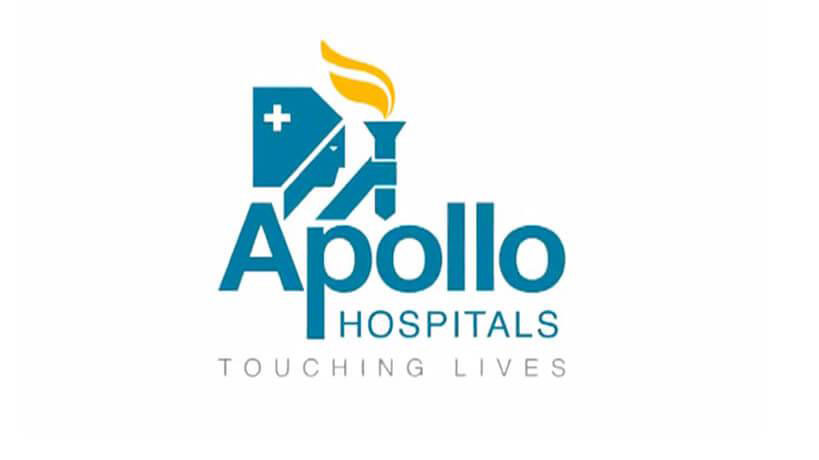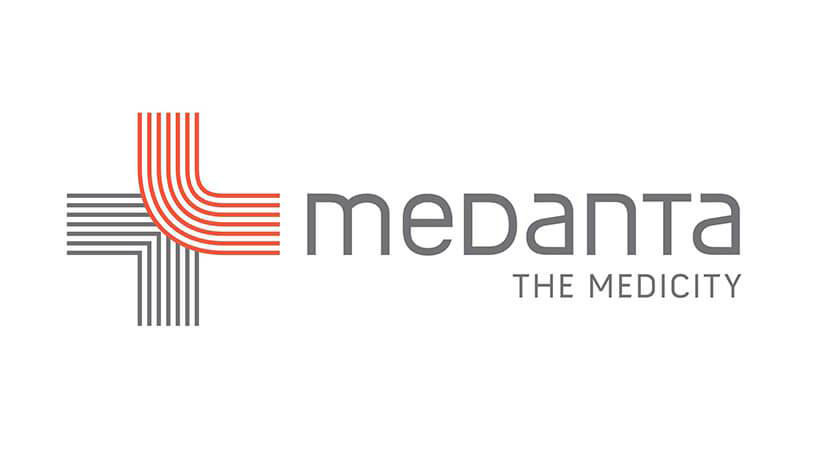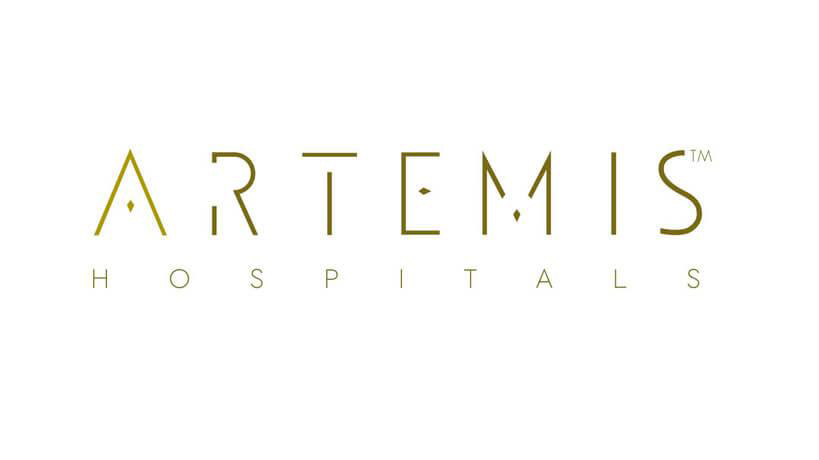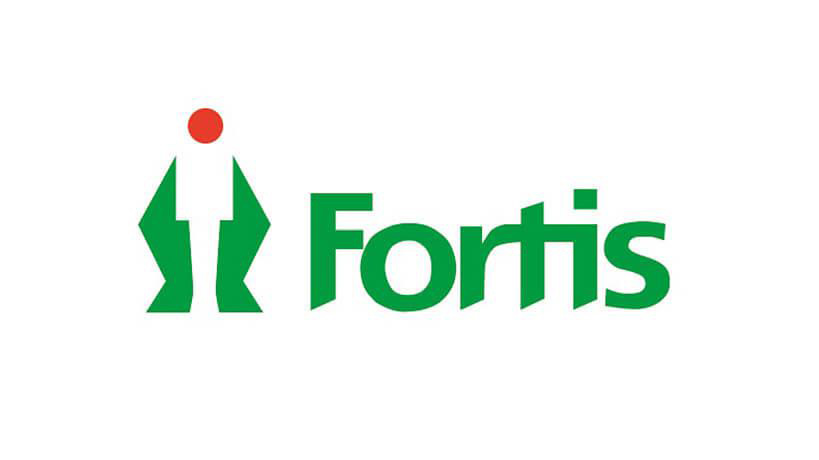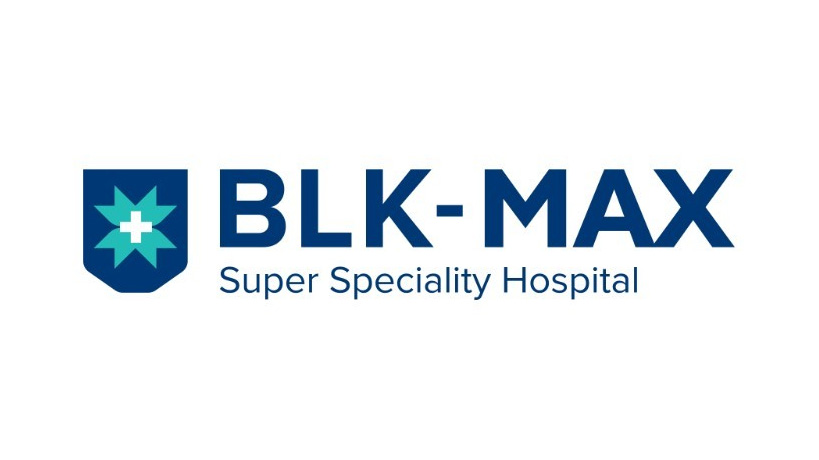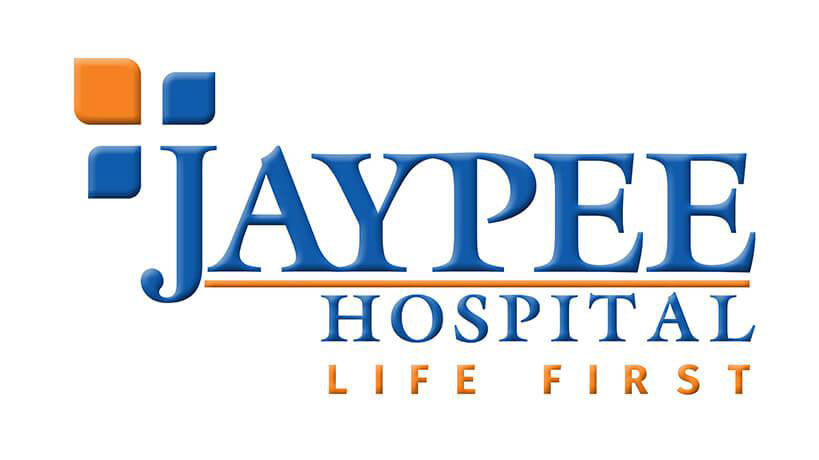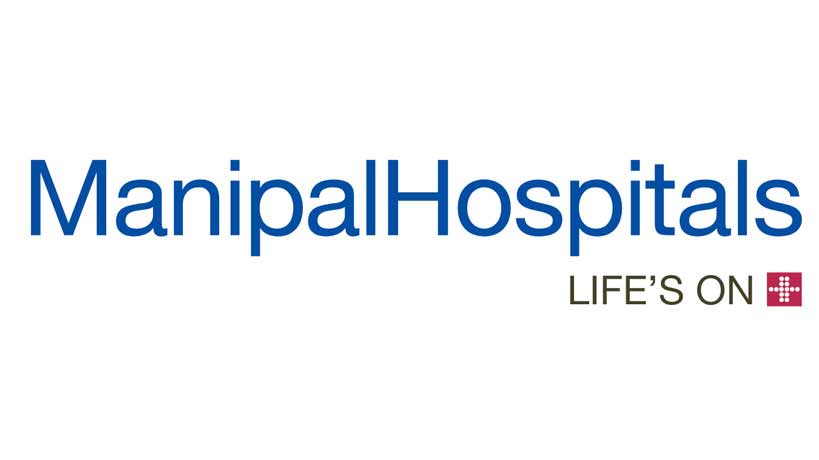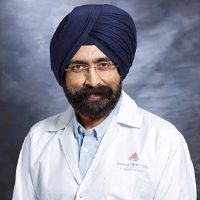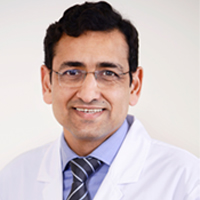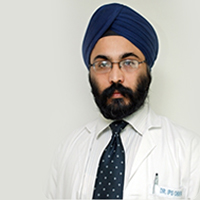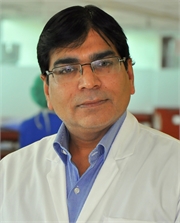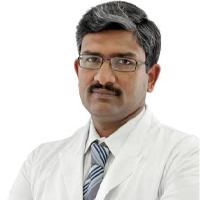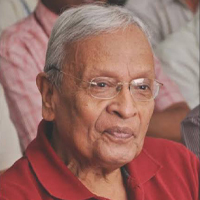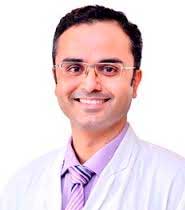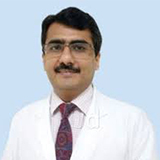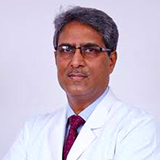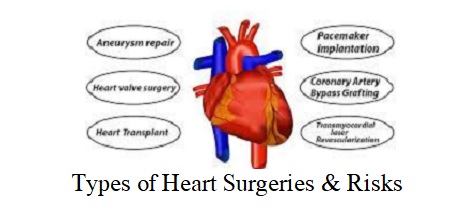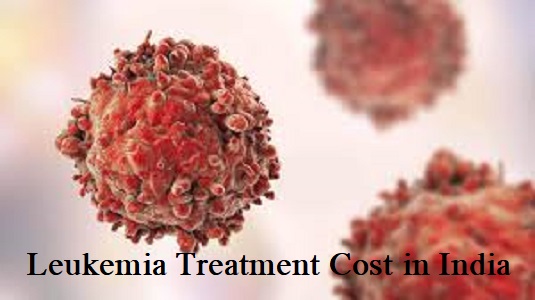
You must understand that the primary objectives of Chemotherapy in cancer treatment are to cure and control the disease. It is the administration of any medicine in an effort to eradicate cancerous cells and cure a variety of cancerous conditions. Chemotherapy effectively eliminates cancer cells that have metastasized to locations throughout the body that are physically distant from the primary tumor.
Free Consultation: For Consultation, Send Us Your Medical Reports By WhatsApp at +91-9643 443 814Get Free Treatment Plan From Top Hospital
Attach Medical Report
Chemotherapy: Treatment, Cost, Uses, Side Effects, & Procedure for Cancer
You must understand that the primary objectives of Chemotherapy in cancer treatment are to cure and control the disease. It is the administration of any medicine in an effort to eradicate cancerous cells and cure a variety of cancerous conditions. Chemotherapy effectively eliminates cancer cells that have metastasized to locations throughout the body that are physically distant from the primary tumor. It assists in the elimination of cancer cells that have spread to other areas of the body even if those sections of the body are located in distant locations from the site of the primary tumor. Chemotherapy may remove, kill, or damage cancer cells across the whole body, in contrast to other treatments such as surgery and radiation therapy, which can only remove, kill, or damage cancer cells in a specific region. When deciding how to proceed with treatment for your cancer, it is essential to have a thorough understanding of the treatment’s objectives, particularly chemotherapy, if your doctor has recommended that course of treatment to you. You will know about chemotherapy cost, effects, etc. below.
Why chemotherapy is carried out
Chemotherapy is a treatment that is administered to cancer patients to eradicate cancer cells.
Chemotherapy may be administered to patients who have cancer in a number of situations, including the following:
- To be successful in curing the disease without using any additional therapies. Chemotherapy can potentially be the only or main treatment for cancer patients.
- After prior treatments, to eliminate cancer cells that have been concealed. Chemotherapy is a therapeutic option that may be used after other medical procedures, such as surgery, in order to eradicate any cancer cells that may still be present in the body. The medical term for this treatment is adjuvant therapy.
- To get you ready for the next treatment. Chemotherapy is able to reduce the size of a tumor to a point where it is more amenable to other forms of treatment, such as radiation and surgery. The medical community refers to this as neoadjuvant treatment.
- To alleviate the indications and symptoms. Chemotherapy works by destroying some of the cancer cells, which in turn relieves some of the signs and symptoms of cancer. This kind of chemotherapy is known as palliative care.
Alternative uses of chemotherapy for diseases than cancer
Certain chemotherapy medications have shown promise in the treatment of a variety of different illnesses, including the following:
- Diseases affecting the bone marrow A bone marrow transplant, often referred to as a stem cell transplant is a procedure that may be used to treat diseases that affect the bone marrow and the blood cells. In preparation for a bone marrow transplant, chemotherapy is often administered.
- Immune system diseases. When treating some disorders, such as lupus and rheumatoid arthritis, chemotherapeutic medications in lower dosages may help control the hyperactive immune system.
After a patient goes through a few tests, the surgeon evaluates the development of a tumor and determines whether or not chemotherapy is necessary. Only after these tests are completed will your doctor offer chemotherapy to treat your condition. Your physician will then determine what drug or combination of drugs you will receive and make a recommendation to you regarding this matter. Your physician will also choose the doses, determine how the drugs will be administered, and determine how frequently and for how long you will receive treatment. All of these choices are dependent on the sort of cancer you have, where it is located, how large it is, how it is affecting normal bodily processes, and how it is affecting your general health.
Chemotherapy - Pre-Procedure

Your preparation for chemotherapy may vary depending on the medications you’ll be given and how they’ll be given to you. To be ready for your chemotherapy treatments, your doctor will provide precise instructions. You could be required to:
Before beginning intravenous chemotherapy, a device will need to be surgically placed. Suppose you get chemotherapy intravenously, which means directly into a vein. In that case, your physician may suggest that you use a device such as a catheter, port, or pump. In most cases, the catheter or another device is surgically placed into a big vein in the patient’s chest area. It is possible to administer chemotherapy medications using the gadget.
Put your body through a series of examinations and treatments to ensure that it is prepared to undergo chemotherapy. It is possible to establish whether or not your body is prepared for chemotherapy by doing blood tests to evaluate kidney and liver function and testing on your heart to evaluate its health. In the event that there is a problem, your physician may decide to postpone your treatment or choose a new chemotherapy medication and dose that is more appropriate for you.
See your dentist. It’s possible that your primary care physician would suggest you see a dentist get your teeth checked for any indications of infection. The treatment of preexisting infections may lower the chance of problems occurring during chemotherapy treatment. This is because certain chemotherapy may weaken your body’s capacity to defend itself against infections.
Prepare for any adverse effects in advance. Ask your doctor what side effects you should anticipate experiencing during and after your chemotherapy treatment, and then make the necessary preparations. For example, suppose your chemotherapy treatment will result in infertility. In that case, you may want to think about the possibility of freezing either your sperm or your eggs so they may be used later. If your chemotherapy treatment may result in hair loss, you may want to make preparations to wear a head covering.
Put together a plan to get assistance both at home and at work. Because most chemotherapy treatments are administered in an outpatient clinic, most chemotherapy patients can continue working and engaging in their regular activities during their treatment. It is impossible to forecast how you will feel after chemotherapy treatment accurately; nevertheless, your doctor should be able to give you a basic idea of how much the treatment may interfere with your normal activities.
Ask your primary care physician whether you will need time off work or assistance around the house following treatment. You should inquire about the specifics of your chemotherapy treatments with your physician so that you may make preparations for your job, your children, your pets, and any other obligations you have.
Get ready for the initial stage of your therapy. In order to prepare for chemotherapy, you should inquire with your physician or the nurses who will be caring for you. It is in your best interest to come well-rested for the first chemotherapy treatment you get. In the event that the chemotherapy drugs you are taking produce nausea, you may want to consume a small meal before your appointment.
Get yourself a ride to your first treatment from a friend or member of the family. The majority of patients are able to drive themselves to and from their chemotherapy appointments. However, when you take the pills for the first time, you could discover that they make you drowsy or produce other side effects that make it difficult for you to drive.
Chemotherapy - During Procedure

These medicines may be administered in a wide variety of methods, all of which are determined by the specific therapy or disease that the operation is intended to address. During the course of the chemotherapy treatment, the patient receives the medications via an IV (intravenous) infusion (intravenously). On the other hand, chemotherapy is most often administered by putting a tube with a needle into a vein in the patient’s arm or by inserting a device into a vein in the patient’s chest.
Chemotherapy - Post-Procedure

Chemotherapy is not without its risks and may result in a number of unpleasant side effects and problems. Rashes, exhaustion, hair loss, nausea, vomiting, diarrhea, and ulcers in the mouth are just a few examples of the typical adverse reactions that may occur as a result of chemotherapy treatment. Your physician will advise you to undergo various tests in order to evaluate and comprehend whether or not the chemotherapy is performing effectively. X-rays, computed tomography (CT) scans, physical examinations, blood tests (to check the condition of the liver and kidneys; there is a possibility that chemotherapy will damage these organs), magnetic resonance imaging (MRI) scans, and positron emission tomography (PET) scans are all examples of the types of tests that may be performed. In addition, your doctor may also choose to provide injections of some type to you to assist in enhancing the production of red and white blood cells.
How often do you need chemotherapy treatments?
There are several different chemotherapy treatment schedules. Your doctor will calculate the frequency of your chemotherapy sessions depending on the features of your cancer, the chemicals you will be given, and how well your body recovers after each treatment. These factors will all be taken into consideration. The chemotherapy treatment may be given continuously or broken up into phases consisting of treatment followed by rest to allow the patient to recuperate.
Chemotherapy - Risk & Complications

It is always a good idea to first know every detail of it and enquire about the success rates of chemotherapy and the price of chemotherapy in India in different hospitals. Based on this information, you will be able to decide for yourself the hospital in India that will satisfy your requirements. Suppose you choose to undergo chemotherapy in India. In that case, it is always a good idea to know every detail. In addition, it is essential for you to investigate the credentials of the medical professionals who will be engaged in the process to assist you with this matter and be aware of all of the potential dangers and difficulties that might arise during the operation. Although chemotherapy does not pose any particular dangers, patients should always exercise caution after receiving the treatment and follow all doctor’s orders.

Top Chemotherapy Oncologists in India
It is not a simple task to find a chemotherapy expert doctor in India, even for an Indian individual, much alone for patients from other countries. Suppose you are looking for the finest doctor to treat you with chemotherapy in India. In that case, Al Afiya Medi Tour healthcare experts are ready to assist you in making that connection. We provide all the information you need to know about the specialists in their field. You may schedule an appointment online with any of the following top chemotherapy physicians in India: Delhi, Gurgaon, Faridabad, Noida, Chennai, or Mumbai. The following list includes comprehensive information about each doctor, including his or her expertise, fees, contact number, and hospital affiliation.

Best Chemotherapy Hospitals in India
If you are contemplating undergoing chemotherapy in India and looking for the most reputable chemotherapy facility in India, you need not be concerned. You can count on Al Alfiya Medi Tour to be there to assist you. Our company has a staff comprised of knowledgeable healthcare specialists. They will assist you in locating the facility in India that offers the highest-quality chemotherapy. You can select any well-regarded chemotherapy facility in Delhi, Gurgaon, Faridabad, Noida, Chennai, or Mumbai, among other cities. The hospitals in India’s most important cities, including Delhi, Mumbai, Gurgaon, Noida, and Faridabad, along with comprehensive information on each facility, including its location, and telephone number, city, and roster of top medical professionals. You may now schedule an appointment with any hospital using their own websites and know about their chemotherapy price in India.
Book An Appointment for Chemotherapy

Get Free Treatment Plan From Top Hospital
Attach Medical Report

Cost of Chemotherapy in India
Because medical care in India is so much more reasonably priced than in most other countries, it has quickly become one of the most popular destinations for those seeking medical treatment from all over the world. It is important that you be aware of the cost of chemotherapy treatment in India if you want to get chemotherapy treatment there. In India, the cost of chemotherapy treatment or surgery varies widely from one hospital to the next and from one city to the next. It is also contingent on the doctor’s charge. Get in touch with Chemotherapy – Al Afiya Medi Tourat any time, day or night, 365 days a year, if you are interested in learning how much the chemotherapy operation in India will set you back. You will get assistance from our healthcare specialists. The typical chemotherapy treatment cost in India comes to roughly $1000. However, the costs might be different in other places because of the hospitals that are located there.

Chemotherapy success rate in India is very excellent. Although success rate depends on various factors such as hospital, doctor, patient, and many more. You can consult online with our healthcare professionals to know the success rate of Chemotherapy in India.
Contact Form
Attach Medical Report
FAQs (FAQs (Frequently Asked Questions))

What is chemotherapy and how does it work?
Chemotherapy or chemo is a cancer treatment that uses chemicals to eradicate cancer cells. Chemotherapy prevents cancer cells from proliferating, dividing, and creating more cells and is a treatment option for different cancers. There are different types of chemotherapy therapies and medication to be administered orally, intravenously, or by injection.
Chemotherapy circulates powerful chemicals throughout the body via the bloodstream and can reach cancer cells anywhere in the body. Chemotherapy treatment is called systematic treatment.
Chemotherapy destroys cells that are dividing to become two new cells. Chemotherapy targets cells that are rapidly growing. However, they can affect healthy growing cells and cause side effects such as hair loss, nausea, and fatigue.
Chemotherapy can be used alone or in combination with other treatments like surgery and radiation.
When is chemotherapy used as a treatment for cancer?
The doctor may recommend chemotherapy if the cancer has spread or there are chances it may spread. Chemotherapy is used for –
- To eradicate cancer.
- Boost the efficacy of other treatments. Doctors use it along with radiation or before surgery.
- Lowering the likelihood of cancer returning.
- Keep cancer spreading to other parts of the body.
- Relieve symptoms of cancer if a cure is impossible.
What types of cancer can be treated with chemotherapy?
There are a range of chemotherapy drugs. The seven primary forms of chemotherapy, the cancer types they treat, and some examples are listed below.
- Leukemia
- Lymphoma
- Hodgkin’s disease.
- Myeloma
- Sarcoma
- ovarian, breast, and lung cancers
- Brain cancer
What are the side effects of chemotherapy?
Chemotherapy medication can kill cancer cells and harm healthy body cells such as hair, skin, and stomach cells. This can cause several unpleasant side effects –
- Hair loss
- Feeling exhausted
- Low immunity
- Sore mouth
- Dry, itchy skin
- Diarrhea or constipation
- Nausea
- Poor appetite
- Pain
- Bruising and bleeding
Most, if not all, of these adverse effects are treatable or preventable, and they all go away once therapy is stopped.
How is chemotherapy administered in India?
Chemotherapy is administered in several ways –
- Intravenous (IV) chemotherapy – Medication is injected into the veins and is called Intravenous (IV) chemotherapy. It can take a few minutes or several hours to complete the treatment. The medication is injected via a small pump, this is called infusion chemotherapy. You can wear or carry the pump, and the medication can be administered over a few days or weeks.
- Oral chemotherapy = Chemotherapy drugs are ingested orally. The medication can be in the form of a liquid, capsule, or tablet. Patients can pick it up at the hospital pharmacy. Oral cancer medications are becoming popular because it is convenient. It is critical patients follow their doctor’s instructions.
- Injected Chemotherapy – The doctor gives you a shot of chemotherapy drugs. The doctor may inject the shot into the skin or intramuscularly.
- Chemotherapy into the artery- The drug may be injected directly into an artery that leads to the cancerous site.
- Chemotherapy into the abdomen – Some cancer requires medication given directly into the abdominal or peritoneum cavity. Peritoneal malignancies respond well to this kind of treatment.
- Topical chemotherapy – Some chemotherapy medication is available in the form of creams or ointments you can apply on your skin.
What is the cost of chemotherapy in India?
The average cost of chemotherapy treatment in India is around $1000.
Are there any insurance coverage options available for chemotherapy in India?
The majority of critical illness insurance policies include cancer, but if a policyholder already has the disease as a pre-existing condition, they may be denied coverage. The best course of action in this situation is to get cancer-specific health insurance.
How many cycles of chemotherapy are typically required for cancer treatment?
You usually receive 4 to 8 cycles of chemotherapy throughout your treatment. A cycle is an interval between two rounds of therapies. You need to take a break between each cycle of therapy to give your body time to heal.
Are there any support services available for patients undergoing chemotherapy in India?
Yes, there are several support services available for patients undergoing chemotherapy in India. Cancer is a difficult disease to tackle. Hospitals provide counselors to help patients and their families deal with the disease. Various non-governmental organizations provide financial assistance. There are crowd-funding websites where you can appeal for funds. The government of India assists needy patients.
What is the success rate for chemotherapy in India?
India has a low success rate for chemotherapy with 30% of Indian patients surviving five years or longer. The main causes of low cancer survival in India are inaccurate or insufficient diagnoses, as well as subpar, ineffective, or inappropriate treatment.
How long is the recovery time after chemotherapy in India?
Despite chemotherapy’s long history of success, patients may experience physical and psychological side effects. It usually takes time to return to normal and can take up to six months or so.
Are there any dietary or lifestyle changes that should be made during chemotherapy treatment?
Yes, several dietary and lifestyle modifications could aid in managing the side effects of chemotherapy:
- Accept practical and emotional assistance – It is important to have a network of people to provide emotional support. This can help improve the quality of life and live longer.
- Manage Stress – Preserved your mental and physical health by lowering your stress levels. Use relaxation methods like yoga, meditation, and guided visualization.
- Get enough sleep –try to get 7 to 8 hours of sleep will help improve your health, coping skills, mood, weight management, memory, and concentration.
- Exercise regularly – you need to follow an exercise regimen, during and after cancer treatment. This may reduce exhaustion, weight gain, and strength loss. Avoid sitting or lying down for prolonged periods. You can try yoga,
- Eat Well – You can control the adverse effects of cancer, recuperate more quickly, and maintain good health by maintaining a healthy diet. This can reduce the risk of cancer recurring. Limit alcohol and caffeine intake and avoid processed food. Eating small frequent meals can help you manage nausea and maintain energy levels.
- Avoid environmental toxins – Reduce your exposure to environmental pollutants, like tobacco smoke, asbestos, styrene (found in Styrofoam), and formaldehyde.
Can chemotherapy be combined with other treatments like radiation therapy or surgery?
Yes, chemotherapy can be combined with radiation therapy or surgery. This approach is used to improve outcomes and increase the efficiency of the treatment. In some cases, chemotherapy is used before surgery to reduce the size of the tumor and make it easier to remove or after surgery to eradicate any cancer cells that may be left after surgery and reduce the chances of cancer returning.
When radiation and chemotherapy are given simultaneously it is called chemo-radiation. Chemotherapy makes the cancer cells which makes the radiation more effective. Chemotherapy uses medication to destroy cancer cells while radiation uses high-intensity X-ray radiation to kill the cells. Treatment decisions will depend on the patient’s health and treatment goals. Your doctors will tailor a treatment plan that specifically caters to your needs.
Which is the best chemotherapy hospital in India?
Artemis Hospital in Gurgaon is considered to be the best chemotherapy in India. The hospital provides multidisciplinary cancer care and treats patients from around the world. The hospital works with a team of doctors and researchers to collaborate to find innovative treatment solutions that might be used to treat and care for patients in an efficient manner.
What are the top 10 chemotherapy hospitals in India?
The top 10 chemotherapy hospitals in India are-
- Max Super Specialty Hospital, New Delhi
- Artemis Hospital, Gurgaon
- Manipal Hospital, New Delhi
- Medanta – The Medicity, Gurgaon
- Fortis Memorial Research Institute, Gurgaon
- Indraprastha Apollo Hospital, New Delhi
- Kokilaben Dhirubhai Ambani Hospital, Mumbai
- BLK Super Specialty Hospital, New Delhi
- Apollo Hospital, Chennai
- Jaslok Hospital, Mumbai
What are top best oncologists in India?
The top best medical oncologist of Artemis Hospital, Gurgaon
- Hari Goyal
- Priya Tiwari
- Vineet Govinda Gupta
Top Doctors & Surgeons in India
Why Choose Us

Personalized Care
24x7 Supports
Top NABH and JCI accredited Hospitals
Free Cost Estimation & Medical Opinion from Specialist
Get Free Tele/Video Consultation
Visa and Traveling Assistance
Post-surgery with Assistance in Follow-ups

